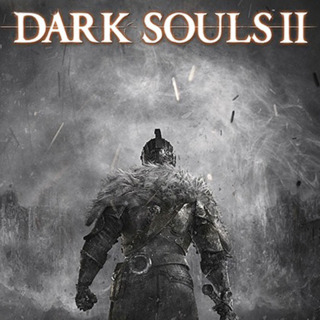The Souls games have always centered around mystery. You might get a little background information at the beginning of your quest, but this proves to be miniscule in the grand scale of the lore. You may eventually piece together more of the puzzle if you're diligent in exploration, reading item descriptions, and talking to NPC's, but what drives you on before you've progressed enough to do so? These games have a tradition of incredibly tight mechanics and level design that can both fit seamlessly into the narratives and be appreciated on their own. In the case of Dark Souls II, the mystery still holds the long term appeal but the slightly muted level design early on means the game takes longer than it should to pick up.
You play as an undead, cursed to always seek greater power through greater souls but never to be fully sated. You are drawn to the distant kingdom of Drangleic although its people have all succumbed to the curse and its king is no longer ruling. You'll quickly learn of the giants, who came from their continent across the sea, attacked Drangleic and got defeated, and eventually took root in their own destruction. What caused them to attack Drangleic? What caused the curse (If you've played the first Dark Souls, you should know. If not, I won't ruin the grim realization for you)? Where else does the power lie? There are numerous other questions, but to say much more would begin to spoil the process of discovery.
The series' method of storytelling is accentuated at the first opportunity for a direct sequel. Other games quickly give the player plot points A, B, C, D, and E. The Souls games expect the player to gradually find plot points A, C, and E and then figure out B and D on their own. Dark Souls II makes this process even murkier by expanding on the lore from a previous game that was already left up to interpretation. There are now more blanks to fill and, in turn, more opportunity to take greater personal ownership in the story.
As is tradition, there are very few quests to make up the structure of the plot. The Souls games don't send the player on dozens of frivolous tasks so they can be showered with false praise every few minutes. The games deal out praise judiciously and evenhanded. They bluntly declare your victory or defeat. In the case of quests, you simply move on to next once you complete one. These games never feel condescending and do everything they can to subvert the power fantasy at their core.
The first quest here is a pilgrimage to four corners of the kingdom in order to gather primal souls and light their respective bonfires and this proves to be the troublesome part of the game. There are some undeniably great parts to the level design (a standout area adds suspicion to every step you take as floor boards give way and poison darts come out of the most unassuming of places), but it feels uneven overall. The biggest contributing factor is the controversial lighting. Most of these early levels feel as though they were originally meant to be lit only by torchlight carried by the player. The effect was axed before release because there were performance issues or perhaps From Software got cold feet before they went through with the idea. Regardless, chunks of these early levels readily show their traps and secrets, never quite reaching the unrelenting pressure seen in the rest of the series.
The online play is a higher note. Covenants make a return, focusing mostly on connectivity. All of the multiplayer covenants have their own role (some more niche than others but switching is easier this time around) including allowing for moral support, giving multiple potential motivations for attacking other players, and filling out parts of the lore. The bottom line is that players have an easier time connecting with each other, underscoring the communal aspect of the series.
It seems like I've been fairly negative so far, but I really do like the game a lot. I could go on for much longer about how there some welcome small touches (fine tuning the character progression, for one) but some bigger misses (relying on warp points instead of shortcuts). However, it would all come down to the incredibly high standards set by Dark Souls II's predecessors. The more I think about it, the more I settle on the conclusion that Dark Souls II is much better than other comparable games because of that very same pedigree I hold it to. It starts off slow, but the real intrigue that comes once the game gets rolling is well worth working towards.

